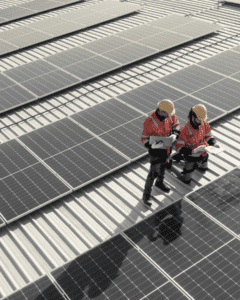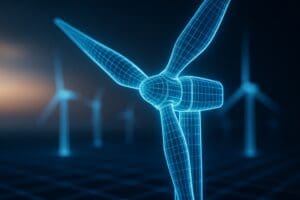Energy 2.0
Europe’s energy sector is changing substantially, creating both challenges and opportunities. Discover how decarbonization goals and digital innovation are reshaping the industry and how companies can thrive in this new environment.

Energy 2.0 – Disruption at its best
Political environment, regulatory & social pressure and foremost the will to realize global decarbonization goals lead to a huge transformation of the energy system across Europe. Established utility companies face challenges like decentralization, digitization, and flexibility as they design a new market centered on the energy and heat transition – opening the door to innovative and disruptive competitors.
Be at the forefront of the energy transition
The European energy sector faces significant challenges, but also vast opportunities for innovation and growth. The interplay of decentralization, digitalization, security, infrastructure transformation, and customer-driven services is reshaping the industry landscape. Companies that successfully navigate these complexities will be at the forefront of the energy transition. The future of energy in Europe depends on bold strategies that embrace change while ensuring reliability, affordability, and environmental responsibility.

"Realizing the energy transition requires courage, pragmatism, and an entrepreneurial mindset. At Eraneos we support our clients in staying on the right path."

Simplifying the future energy system
The energy sector faces major transformations in infrastructure and customer interactions. By simplifying complexity through clear strategy, supported by data/AI technologies and customer-focused implementation, we create a more efficient energy system for the future.

Simplifying regulatory changes
Regulatory changes are essential for the energy market to enable rapid data exchange and innovative propositions. Through deep market understanding and smart AI application, we translate often contradictory or unclear legislation into concrete, actionable steps for energy companies.

Digitizing the energy value chain
The energy value chain must manage cyber risks, comply with regulations while facilitating transparent information sharing. With shifting traditional roles, new business models, IT infrastructures and ecosystems emerge that are essential for market positioning in the digital energy world.

Fact-based efficiency gains
In this data era, we combine market knowledge with data insights for objective conclusions about efficiency improvements. This eliminates subjectivity and gut feelings, or uses data to critically test these intuitions for better results.

Meeting 22nd-century customer needs
End customers become increasingly self-reliant through self-service solutions. Energy collectives bypass intermediaries. How energy players orchestrate customer needs determines their relevance in the evolving energy value chain.














